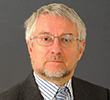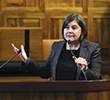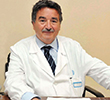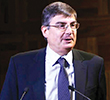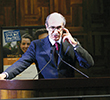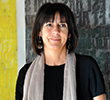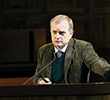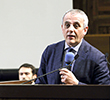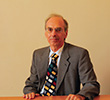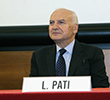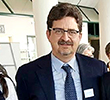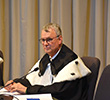12 Faculties, One University
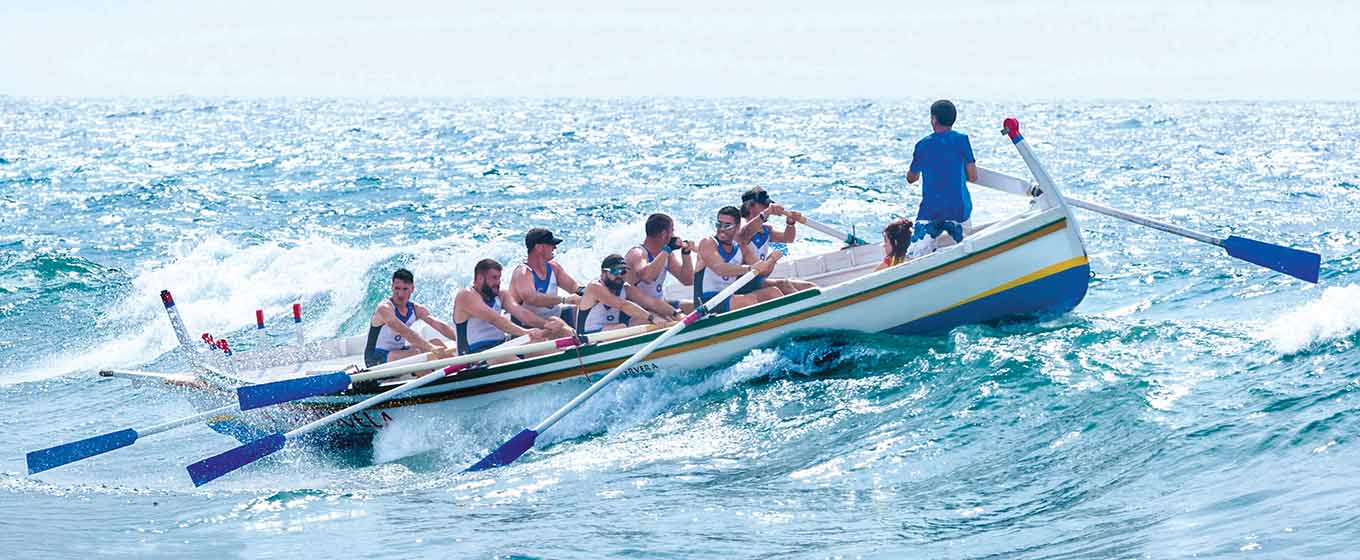
On the university campus, the institutional directors and management discuss re-entry. They have drafted the university guidelines to guarantee their community’s safety in the post-lockdown setting. Essential workers plaster sign markers to guide people where to stand or walk while others adjust the bottles of hand sanitizer that stand in almost every corner of the campus. Everyone is involved and works together as one team for the re-opening. Students, academic staff, and university employees will be back again on campus as Università Cattolica del Sacro Cuore opens in September.
The Past
During the first wave of COVID-19, Università Cattolica decided to postpone its in-person didactic activities. It turned to online teaching and advised its students across all campuses to take precautionary measures and stay at home. The weeks that followed encouraged the students, academic staff, and university employees to adapt and adjust to the new system following the unforeseen pandemic that swept the globe.
After the suspension was announced, students were unsure of the next steps. Were the online classes temporary? When would they return on campus? The questions sprouted at a lightning pace. To tackle the queries at once, the Deans of each faculty provided answers, stomping down concerns that popped up on the students’ mind.
Professor Rocco Bellantone, Dean of the Faculty of Medicine and Surgery in Rome, said that faculties and staff members ensured that the students would receive well-rounded support and comprehensive materials during the online lectures. Amidst the ongoing crisis, he asked the students to embrace the time as an opportunity to reflect upon the value of our relationships with our loved ones. Professor Anna Maria Fellegara, Dean of the Faculty of Economics and Law in Piacenza, also reminded the students not to forget to take care of their loved ones and support them during the tough time.
A few days after, the online lessons began. Professor Stefano Solimano, Dean of the Faculty of Law in Milan, said that online teaching would become a norm soon and students’ feedback would be a top priority to improve the online system. Professor Marco Trevisan, Dean of the Faculty of Agriculture, Food, and Environmental Science in Piacenza, said that the academic staff had done their best, considering the limited time given, to adapt the resources and activities for online use. “I am pleased to see that many of our students have promptly and proactively followed the instructions of their professors and are downloading lectures, studying, and carrying out the exercises. Their collaboration is more crucial than ever to ensure the effectiveness of the remote teaching,” said Professor Trevisan.
His conclusion tossed out a reminder that the students, academic staff, and university employees would want to hold onto: to see the light at the end of the tunnel. Professor Luigi Pati, Dean of the Faculty of Education in Milan, grappled with that undying spark of optimism in the dark times. “I think it is our duty to emphasise that, as scholars of educational issues and as educators, we cannot lose our optimism. We are obliged to cultivate in ourselves and in others the conviction that there’s always a solution. In the meantime, let’s foster courage to face the difficult situations we’re living in,” he said.
Professor Maurizio Paolini, Dean of the Faculty of Mathematical, Physical and Natural Sciences in Milan, echoed these thoughts as he shared that looking at the positive aspects in the glum crisis could be our best tool. Professor Angelo Bianchi, Dean of the Faculty of Arts and Humanities in Milan, believed that everyone would overcome the situation. “As human beings, we are capable of finding extraordinary resources to react, to keep going, to overcome the fear that we face in very difficult and unexpected situations – which is exactly the moment we are living now,” he said.
Students understood that they needed to stay at home during the lockdown period. The time helped them reflect on what their present and future would look like. Alessandro Longeri, a student of the double degree course in International Management, was looking forward to studying at ESB Reutlingen, but his plans had been put on hold due to the pandemic. For now, he’s doing his internship remotely and focusing on improving his skills. Sara Bombardieri, an undergraduate student, is graduating this year, but the suspension meant that she would not spend the rest of her university months with her friends. Even though it was not her ideal setting, she realized that the situation was grave and protecting the other students by not coming to the university was important.
While in lockdown, students took the Deans’ advice and worked on their study habits and personal lives. Alejandra Vargas, an undergraduate student, spent her spare time watching online lectures and preparing her notes for the upcoming summer session exams. “By the time April rolled in, I fully emerged in studying for my final exams and writing my research paper. Sometimes, I feel tired from absorbing so much information, but I try to take breaks in between by watching TV shows or movies,” she said. She’s not alone. Axel Beugre, an undergraduate student, kept himself busy, making sure that he was packed with reviewers for his summer session exams. Between reading his materials and jotting down key concepts, he FaceTimed his friends and family and watched TV series and movies to take a breath from the upsetting news about the virus.
A few weeks after, Professor Elena Beccalli, Dean of the Faculty of Banking, Finance and Insurance Sciences in Milan, said that remote teaching and online graduation sessions had received positive responses from the students, thanks to the collaborative efforts of the University community. The institution also held training for students and academic staff who found difficulties uploading, accessing, and downloading the files and apps online.
Professor Pati said that the professors had adjusted their means of delivering lectures online to better adapt to the students’ needs. “The professors adopted methods of synchronous and asynchronous interaction such as webinars, video lessons, forums, and emails, to cater our students’ needs. Led by our Rector, the Deans of all faculties are considering the possibility to offer online classes as a substitute to traditional learning once the University opens again,” he said.
The Present
Students have given positive remarks on the online teaching of the University. Francesca Sardi, an undergraduate student, says that recorded video lectures make it easier to rewind what the professors discuss in case she misses a certain key concept. “Also, it offers flexibility. Now, I can manage my time on which subject I should watch first unlike when I need to attend a live class,” she says. In emergencies such as the pandemic, Sara finds online classes an effective way to catch up with the lectures. Studying online can make up for the loss time of in-person teaching, but she is aware that face-to-face lessons weigh more. “For now, remote classes are beneficial and an efficient way to learn while at home,” she says.
Aside from the remote classes, the spare time students have can pave a way to learn new skills and apply what they have learned in the real-life setting. Professor Guido Merzoni, Dean of the Faculty of Political and Social Sciences in Milan, said that multidisciplinary skills are important now more than ever and everyone is a key figure in the time of the pandemic. “Our students are used to thinking about societal issues. They are used to studying economics, political science, law, history, psychology, etc. This multidisciplinarity helps them build a varied toolbox to face the history and outlook of this pandemic. There’s a line of cooperation that has been sparked by the situation and communication plays an important role. As future global citizens, part of our community’s duties is to keep it together, to enlighten everyone about the crucial issues, and to build adequate emergency responses to what the society needs. Everyone is affected and this is our time to show a presentation of disciplined social behavior,” he says.
Professor Giovanni Gobber, Dean of the Faculty of Linguistic Sciences and Foreign Literatures in Milan, underlines that the students and academic staff slowly improve their online interaction and the digital amidst the pandemic. “The professors and students slowly become familiar with the online environment and interaction. The students have started to adjust on how to interrupt when they need to ask questions to their professors to prevent talking over them. The professors have developed a time system when to pause to ask questions and clarify concepts. Although students miss the peer interaction, they understand that remote teaching is a feasible tool to keep learning,” he says.
Professor Alessandro Antonietti, Dean of the Faculty of Psychology in Milan, says that the pandemic is an opportunity to acquire or test our capabilities to adapt easily to the crisis and self-regulation. Students are presented with new tools to challenge their different ways of thinking which in turn can benefit them in the future. “The pandemic also provides sufficient information for further research projects that concern the psychology of people. We exemplify the idea of social support and resilience today, two concepts that can benefit the studies of social psychology, health psychology, clinical psychology, and well-being psychology,” he says.
Professor Domenico Bodega, Dean of the Faculty of Economics in Milan, mentions that the pandemic is a way for the faculties to realize projects they have been curating throughout the years such as blended learning. It pays attention to the needs of working students who need to balance their study and work schedule. Blended-learning courses employ professors who are fluent in technology and tutors to assist the students, and are able to evaluate the students’ needs based on knowledge, skills and competences, and applying what they have learned in employment. “We’ve started reviewing the content of various courses. We now have time to redesign them. For the next academic year, we are reviewing and discussing how we plan the overall learning path. We’ve worked with professors who have already had experiences in blended learning and asked them to help out their co-professors before we can finally re-design as one,” he says.
There are degree courses that require the use of laboratories to complete a research study and the University faculties have helped create a plan to continue this. For students who need to use the university laboratories, Professor Trevisan assures that it has always been safe even before the pandemic. “The only thing we will not put on the web will be the laboratories. Fortunately, the laboratories are more than spacious, so we can observe social distancing and apply the safety protocols at full-capacity,” he says.
For months, the students, academic staff, and university employees have worked together to ensure that quality education will still be provided regardless of the pandemic. While the Università Cattolica community study and work remotely, the essential workers of the institution are preparing the University for its re-opening this coming fall.
The Future
Università Cattolica del Sacro Cuore will open its doors to new and returning students, academic staff, and employees this September. Everyone will observe the safety measures and protocols as stated in the University Guidelines drafted and agreed upon by the Rector, Executive Board Members, and Deans of Faculties across the campuses. The health safety of every member of the Cattolica community is the top priority for the institution’s management.
Professor Roberto Cauda, the Infectious Disease Unit Director of Policlinico Gemelli in Rome and an Infectious Disease Professor of Universita Cattolica del Sacro Cuore, assures the Cattolica community that the re-entry adheres to safety guidelines and everyone will be strongly encouraged to follow the University’s directions. “From today, we will live with the virus, but not in fear. We will observe social distancing, wear masks and gloves, and make sure that everyone follows the protocols. It’s impossible to reach a zero-case situation, but it shouldn’t stop us from a well-guided re-entry. This will end soon. In the meantime, we need to be committed to the rules and regulations to ensure safety and public well-being,” says Professor Cauda.
Didactic activities will undergo changes as the University re-opens. Students can reserve their place on campus if they want to attend classes or simultaneously watch the lecture’s live stream online. The students watching from home will be able to ask questions to the professors during the lectures.
Professor Antonietti says that the re-entry provides an opportunity for the faculties to determine which methods are effective in delivering lessons based on the academic staff’s experience in remote teaching. “We started from a situation of adaptation, but then it turned out that we could do many things that were effective, even more effective than those initially proposed. The results have been noteworthy. This experience has allowed us to develop new ideas for which we have developed an offer that uses different and innovative tools and methods,” he says.
Professor Bodega shares that going online for lectures in the future is a way to stay out of the comfort zone and embrace changes. The pandemic has highlighted how necessary it is to adapt to digital technologies. “On top of that, the focus our Faculties places on learning social competence and social intelligence is fundamental and varies in complexity,” he says. He also mentions how faculties will start adapting to the new norm of reduced classes, but maintain the quality of lectures and interactions for students who will be watching from home. “Also, the Faculties have decided to meet up with students who have any questions about our lessons in person. We will accommodate them in small numbers to ensure everyone’s safety. We believe that direct interaction forms better academic relationships and we strive to deliver that,” he says.
Students look forward to going back to the University regardless of the restrictive health measures. Axel might be worried about being on campus, but he believes that following the health guidelines of the University means that he is protecting himself and everyone from getting infected. “I can’t wait to attend the classes again at the University! I believe that our Institution has prepared for the re-entry and we just need to be careful and mindful of our surroundings,” he says.
Alejandra has embraced the news with open arms, knowing that she now has the chance to graduate on campus. “It may seem mundane, but I care about ceremonies, especially my graduation. It gives me a sense of closure as a student. It’s also a chance for my family to see their hard work pay off,” says Alejandra. Sara says that other students will benefit from going back on campus. She believes that studying can be done online, but doing so on campus is a stage in life that is impossible to live in virtually.
Francesca reminds her co-students not to get carried away with the excitement. “I’m sure there are students who will be happy with the news, but we should always be aware of our actions since the virus hasn’t gone yet. I understand that it’s exciting to live the university life, but at this stage we need to prioritize our health too,” she says.
While there are students who cannot wait to go back, others are hopeful that Cattolica will continue its online lectures. Alessandro says that the pandemic is a signal to modernize the University’s approach to lectures. “It’ll be great for teachers to set up their course programs online to accompany the standard lectures after the university re-opens. It would be hard work at first, but it would provide such a powerful teaching tool for everybody, and it would reduce the stress and volume of questions for teachers as well as provide valuable support for the working students,” he says. Emilie Brøndum-Jensen, an undergraduate student, says that the online lectures have been more than helpful in her learning. “It’s a great idea to continue it. One positive point that I can share is how I can pause the video if I don’t understand a key concept, do a quick research on that term, take down notes, then play the video again. It’s also a way to help the students who want to check whether they’ve written the correct key terms,” she says.
There might be a sense of reluctance in the gradual re-opening of the University, but the institutional directors and management stand still to assure their students, academic staff, and university employees that observing the health guidelines is the best prevention measure to remember. Every day after the first week of the pandemic, the University hums in silence, waiting for the chatter of the students and the booming voices of the professors. This coming September, it will wake up again to the sound of normalcy in the time of the pandemic.
|
Professor Alessandro Antonietti |
Professor Elena Beccalli |
Professor Rocco Bellantone |
Professor Angelo Bianchi |
|
Professor Domenico Bodega |
Professor Anna Maria Fellegara |
Professor Giovanni Gobber |
Professor Guido Merzoni |
|
Professor Maurizio Paolini |
Professor Luigi Pati |
Professor Stefano Solimano |
Professor Marco Trevisan |


